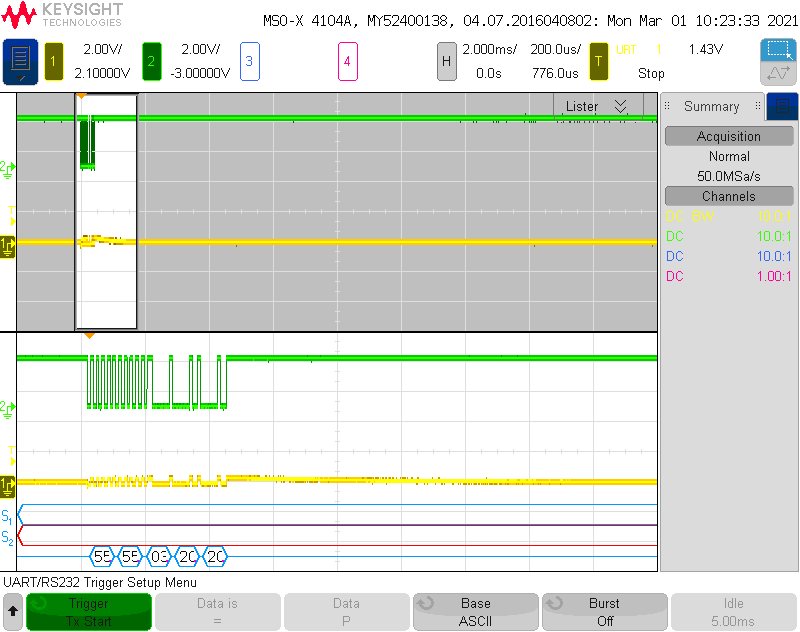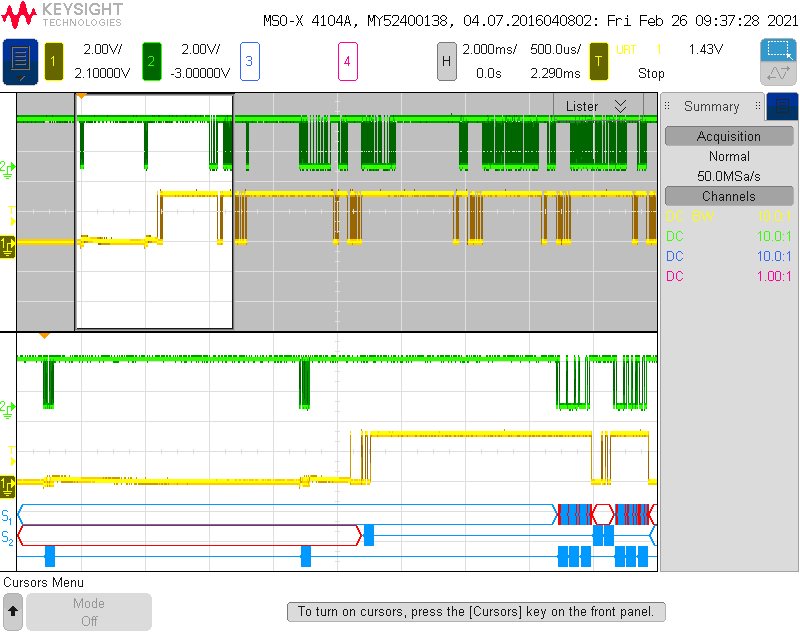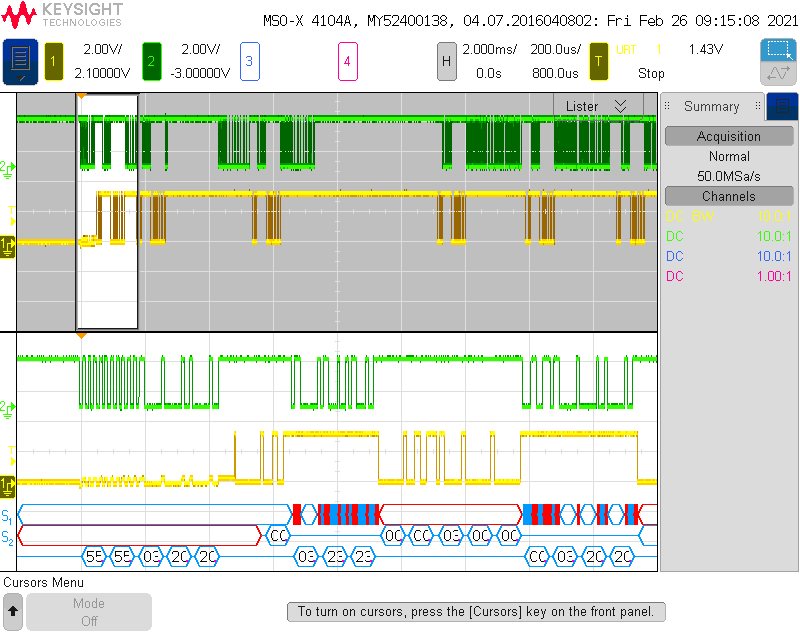I have a product that has been running the TM4C1231D5PM successfully with silicon version 6. We just got new boards in with version 7 parts and are now having problems entering the ROM bootloader from erased parts. Swapping a V6 MCU onto the new board works fine. Swapping a V7 MCU onto the older board does not work, so the problem follows the V7 MCU.
Application: The MCU is booted by a host processor and if there is no program, the host processor resets the MCU, sends the autobaud sequence, pings the MCU, and then proceeds to update the firmware through the ROM bootloader. This process is used to program factory new MCUs and has been working well.
The autobaud bytes are sent with no delay between them and the ping command is send immediately after that.
With v7 silicon, the MCU does not respond to the autobaud bytes or the ping command. Testing shows that adding a delay (~2mS) between the autobaud bytes fixes the issue.
I would like some clarification on why the version 7 silicon behaves differently before this goes to production. Is there any documentation that clarifies the timing requirements for autobaud and subsequent commands?





